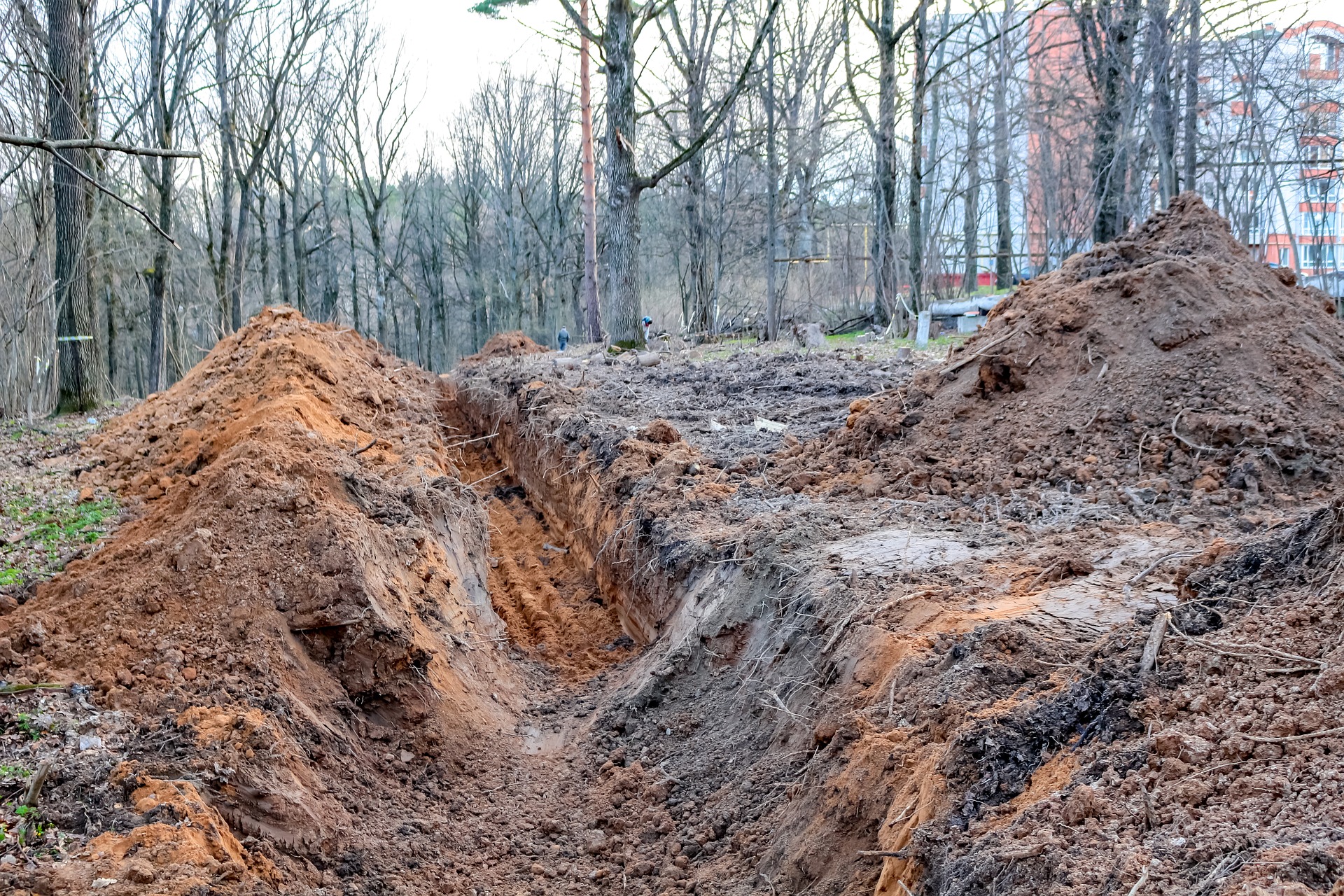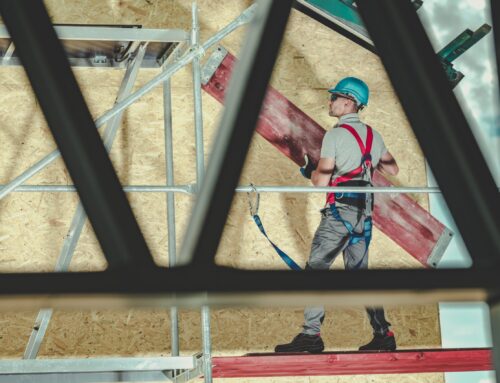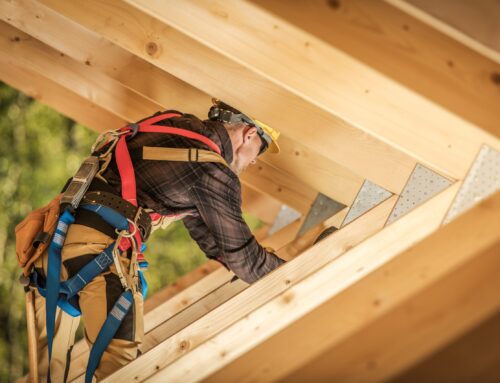Working in an excavation or trench is one of the most dangerous jobs you’ll have. It’s so dangerous that on average, two workers in North America are killed every month in trench collapses.
How Cave-Ins Happen
Undisturbed soil stays in place because opposing horizontal and vertical forces are evenly balanced. When you create an excavation, you remove the soil that provides horizontal support. Soil will eventually move downward into the excavation. The longer the face (a side of the excavation) remains unsupported, the more likely it is to cave in.
Workers were digging a trench at an abandoned motel, preparing for the demolition of the building. The victim was trying to tap off a sewer line when the collapse occurred, burying him in heavy clay. His fellow workers could hear his voice – at first – then the construction worker buried in a trench collapse fell silent. The incident occurred at a suburban Detroit worksite and emergency responders were not able to recover the man’s body for four hours. He was pronounced dead at the scene but the co-workers who tried to rescue him knew he died almost as quickly as the dirt buried him. The fire chief on the scene said the 11-foot-deep trench did not appear to have any shoring.
Increasing Inspections
Early this month (July 2022), the US Department of Labor announced enhanced nationwide enforcement and additional oversight “to stress the dangers of disregarding federal workplace safety requirements for trenching and excavation work,” due to the high number of fatalities in the first half of 2022. So far this year, 22 workers have died in the US due to the hazards associated with trenching and excavation – a 50% increase over the total number of fatalities in 2021 with half a year to go.
“Trenching and excavation operations require protective systems and inspections before workers can enter. When employers fail to install trench protection systems or properly inspect the trench, workers are exposed to serious hazards, including risk of being buried under thousands of pounds of soil. By some estimates, a cubic yard of soil can weigh as much as 3,000 pounds, equal to that of a compact car.”
A trench collapse in San Antonio, Texas killed a worker and endangered crews and co-workers who were trying to save him. The 36-year-old victim was buried up to his neck after an 8-foot-deep trench at a drainage project collapsed, trapping him. He died during the rescue operation. The San Antonio Fire Department Chief said no one could have survived the tonnage of clay soil that collapsed and crushed Williams. Recovery operations took hours, as rescue crews had to shore up the walls of the trench to prevent further collapse.
Dangerous Work Requires Increased Safety Awareness & Processes
An informed worker is a safe worker. Never allow yourself, or coworkers, to be put in a dangerous situation – knowing what a safe excavation should look like, who the competent person is, and what the safe work practices to follow saves lives.
Here are just a few tips to consider:
- Know where underground utilities are located before digging.
- Keep excavated spoil piles at least 2 feet (1 meter) from trench edges.
- Keep heavy equipment as from trench edges as possible.
- Know equipment or activities that affect trench stability.
- If an excavation or trench is more than four feet deep – don’t enter it until the air has been tested for oxygen levels and other atmospheric hazards.
- A competent person must inspect trenches at the start of each shift, following a rainstorm or other water intrusion, and after any occurrence that could have changed conditions in the trench.
- Do not work under suspended or raised loads and materials.
- Wear high-visibility clothing when exposed to moving equipment and traffic.
SafetyNow has multiple online courses to help educate your employees on the correct and compliant procedures for SAFE excavations and trenching; available in multiple languages and mobile optimized so they can be taken in the field. To find out more, or book a demo, click here – and if SafetyNow is the right fit for you, quote promotional code “trenching” to save an additional 20%.






